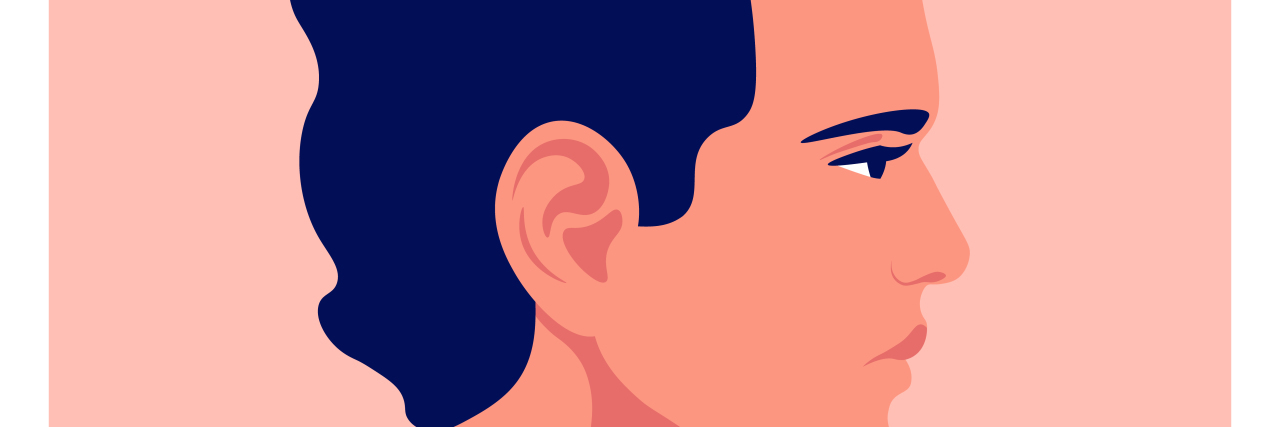How I'm Dealing With the Coronavirus Pandemic as Someone With Health Anxiety
Many people with anxiety disorders find that their anxiety doesn’t just affect one area of life. I’ve had anxiety over my health since about 2012 when the stresses of graduate school started causing me chronic headaches, back pain, and gastrointestinal problems. So I’ve lived with health anxiety for about 10 years. I’ve written previously about how minor internal sensations can be triggers for traumatic stress symptoms, which is even worse when those sensations can be as subtle as a scratchy throat or a tingling in your chest. Here is how I’m surviving the COVID-19 pandemic despite having health anxiety.
Building a Self-check Plan
I know from past experience that my anxiety disorder can result in unnecessary 911 calls, ER visits, and trips to Urgent Care. Now more than ever, I’m trying to avoid going to the hospital if I can afford to since hospitals are overwhelmed and I might be at greater risk of infection in a healthcare setting. Each person will need their own self-check plan to set a threshold for when they should seek medical care because everyone’s risk factors for severe illness are different. When my anxiety symptoms are low, I ask trusted individuals like my doctor and my family members when I should go to the hospital. Is it when I have a fever? A cough? How much of a fever? Then I check myself against this advice when I start to panic. I have a bleeding disorder and no spleen, so for me, it’s important not to expose myself to the coronavirus while still being watchful for signs of infection that could be serious. For me, it has been important to get advice from knowledgeable people I trust when I am (relatively) calm rather than trying to figure out myself how bad things are. I’ve had to admit to myself that now is not a time when I’m at my best when it comes to thinking objectively.
Educating Yourself With Reliable Sources
Unfortunately, there is already a multitude of urban legends being passed around on social media about the coronavirus, including a myth that holding your breath can act as a diagnostic test (it can’t). Snopes.com has a collection of fact-checking articles about COVID-19 that you can use to explore claims in more depth. Even between reliable sources, however, there is a lot of inconsistency between national and local level recommendations. There is a hierarchy in place: first, check CDC.gov for general recommendations, but you can also consult your local county health department’s webpage for up-to-date information specific to your area. My area, Santa Clara County, is one of the most direly affected. Thanks to checking reliable sources frequently, I learned about our new “shelter-in-place” restrictions quickly and accurately. This allowed me to come up with a plan for the next three weeks that was realistic and not based on rumors. I’ve also been reviewing the physical symptoms of my anxiety disorder in the resources I have from therapy so that I can separate them from possible COVID-19 symptoms more easily.
Stay Active and Distract Yourself
This is not the time to be guilty about your anxiety disorder or to try and eliminate feelings of anxiety. It is the time to practice radical acceptance that this is a really difficult, triggering time for you and it is understandable that you might be terrified to leave the house, touch a door knob, or even touch your own face. It’s time to pull out the coping skills that distract you from symptoms rather than trying to solve them or beat yourself up into making them go away. If you can, it’s healthy to go outside for some fresh air and continue to practice hobbies that bring you joy. I’ve been having a lot of trouble doing this myself — I can’t practice what I preach because I’ve been glued to the computer! So I’m starting small in terms of trying to take very short walks outside, and if I can’t do that, just sit on my patio with a book or some music. If I can’t do it for 10 minutes, I’ll do it for five. Writing this article is one way I’m coping. I’m also trying to use this as an opportunity to start some home projects that I’ve been putting off. I can’t make the anxiety go away by doing these things — I’m going to be anxious anyway — but at least I can prevent it from escalating.
You Can Be Proud of Yourself
If you have health anxiety of any variety, this is bar-none one of the most challenging times to manage anxiety symptoms. Daily activities like going grocery shopping and getting gasoline are suddenly forays into alien, unfamiliar territory with empty shelves and everyone staying 6 feet away from you. This lack of stability and uncertainty about the future is concerning to everyone, so it shouldn’t be surprising that it’s making my life very, very different right now in some negative ways. No matter how you are coping during the COVID-19 outbreak, you are amazing for surviving this. Beyond being gentle with yourself and practicing self-care, you can be proud of yourself for facing one of your biggest triggers. I’m rooting for all of us during these hard times.
Getty image by Maria Voronovich.

